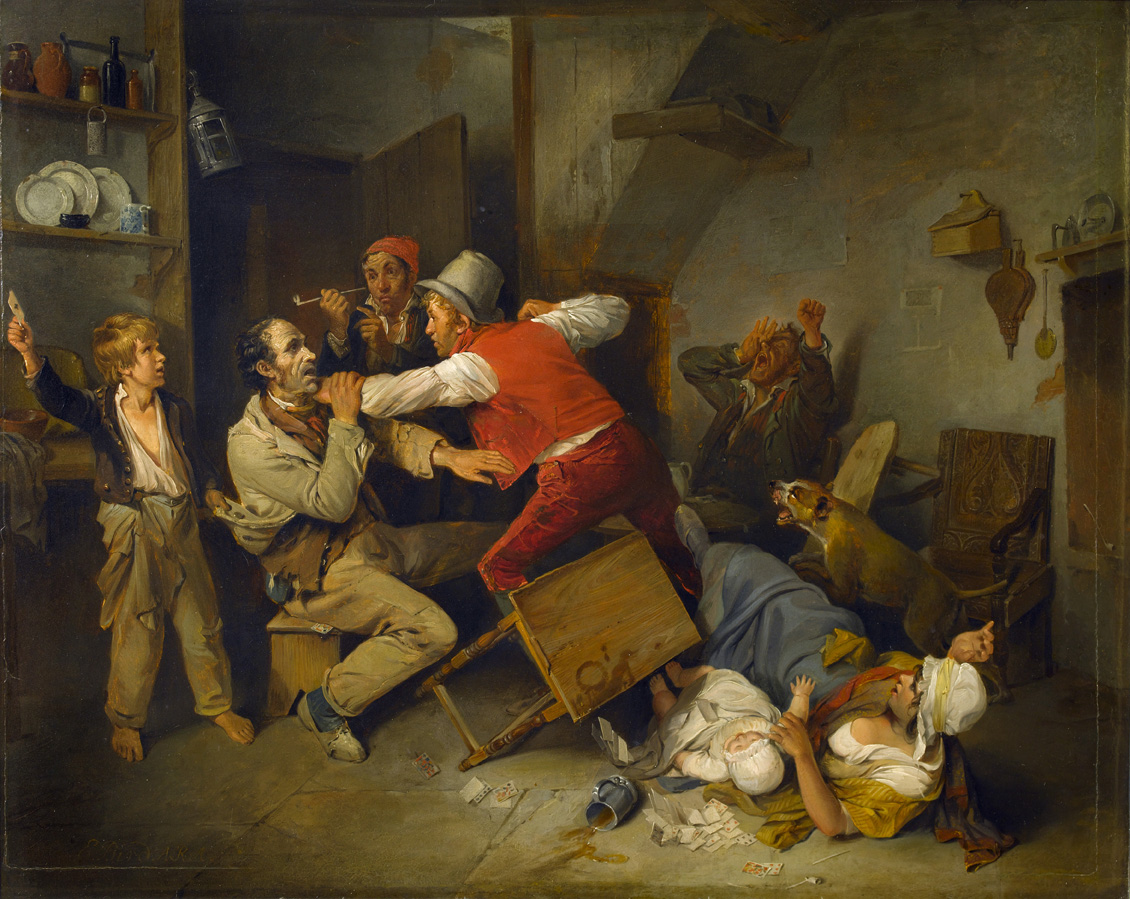Children and fools cannot lie.
—John Heywood, 1546Twisting the Plot
Patricia Highsmith on the dangers of marriage.
Sarah had always played the field as an amateur, and at twenty she got married, which made her licensed. To top it, the marriage was in a church in full view of family, friends, and neighbors, maybe even God as witness, for certainly he was invited. She was all in white, though hardly a virgin, being two months pregnant and not by the man she was marrying, whose name was Sylvester. Now she could become a professional, with protection of the law, approval of society, blessing of the clergy, and financial support guaranteed by her husband.
Sarah lost no time. It was first the gas-meter reader, to limber herself up, then the window cleaner, whose job took a varying number of hours, depending on how dirty she told Sylvester the windows had been. Sylvester sometimes had to pay for eight hours’ work plus a bit of overtime. Sometimes the window cleaner was there when Sylvester left for work, and still there when he came home in the evening. But these were small fry, and Sarah progressed to their lawyer, which had the advantage of “no fee” for any services performed for the Sylvester Dillon family, now three.
Sylvester was proud of baby son Edmund, and flushed with pleasure at what friends said about Edmund’s resemblance to himself. The friends were not lying, only saying what they thought they should say, and what they would have said to any father. After Edmund’s birth, Sarah ceased sexual relations with Sylvester (not that they’d ever had much) saying, “One’s enough, don’t you think?” She could also say, “I’m tired,” or “It’s too hot.” In plain fact, poor Sylvester was good only for his money—he wasn’t wealthy but quite comfortably off—and because he was reasonably intelligent and presentable, not aggressive enough to be a nuisance and—well, that was about all it took to satisfy Sarah. She had a vague idea that she needed a protector and escort. It somehow carried more weight to write “Mrs.” at the foot of letters.
She enjoyed three or four years of twiddling about with the lawyer, then their doctor, then a couple of maverick husbands in their social circle, plus a few two-week sprees with the father of Edmund. These men visited the house mainly during the afternoons Monday to Friday. Sarah was most cautious and insisted—her house front being visible to several neighbors—that her lovers ring her when they were already in the vicinity, so she could tell them if the coast was clear enough for them to nip in. One thirty p.m. was the safest time, when most people were eating lunch. After all, Sarah’s bed and board was at stake, and Sylvester was becoming restless, though as yet not at all suspicious.
Sylvester in the fourth year of marriage made a slight fuss. His own advances to his secretary and also to the girl who worked behind the counter in his office supplies shop had been gently but firmly rejected, and his ego was at a low ebb.
“Can’t we try again?” was Sylvester’s theme.
Sarah counterattacked like a dozen battalions whose guns had been primed for years to fire. One would have thought she was the one to whom injustice had been done. “Haven’t I created a lovely home for you? Aren’t I a good hostess—the best according to all our friends, isn’t that true? Have I ever neglected Edmund? Have I ever failed to have a hot meal waiting for you when you come home?”
I wish you would forget the hot meal now and then and think of something else, Sylvester wanted to say, but was too well brought up to get the words out.
“Furthermore I have taste,” Sarah added as a final volley. “Our furniture is not only good, it’s well cared for. I don’t know what more you can expect from me.”
The furniture was so well polished, the house looked like a museum. Sylvester was often shy about dirtying ashtrays. He would have liked more disorder and a little more warmth. How could he say this?
“Now come and eat something,” Sarah said more sweetly, extending a hand in a burst of contact unprecedented for Sylvester in the past many years. A thought had just crossed her mind, a plan.
Sylvester took her hand gladly, and smiled. He ate second helpings of everything that she pressed upon him. The dinner was as usual good, because Sarah was an excellent and meticulous cook. Sylvester was hoping for a happy end to the evening also, but in this he was disappointed.

The Cheat Detected, 1814, by Edward Bird. Sir John Soane’s Museum, London.
Sarah’s idea was to kill Sylvester with good food, with kindness in a sense, with wifely duty. She was going to cook more and more elaborately. Sylvester already had a paunch, the doctor had cautioned him about overeating, not enough exercise and all that rot, but Sarah knew enough about weight control to know that it was what you ate that counted, not how much exercise you took. And Sylvester loved to eat. The stage was set, she felt, and what had she to lose?
She began to use richer fats, goose fat, olive oil, and to make macaroni and cheese, to butter sandwiches more thickly, to push milk-drinking as a splendid source of calcium for Sylvester’s falling hair. He put on twenty pounds in three months. His tailor had to alter all his suits, then make new suits for him.
“Tennis, darling,” Sarah said with concern. “What you need is a bit of exercise.” She was hoping he’d have a heart attack. He now weighed nearly 225 pounds, and he was not a tall man. He was already breathing hard at the slightest exertion.
Tennis didn’t do it. Sylvester was wise enough, or heavy enough, just to stand there on the court and let the ball come to him, and if the ball didn’t come to him, he wasn’t going to run after it to hit it. So one warm Saturday, when Sarah had accompanied him to the courts as usual, she pretended to faint. She mumbled that she wanted to be taken to the car to go home. Sylvester struggled, panting, as Sarah was no lightweight herself. Unfortunately for Sarah’s plans, two chaps came running from the club bar to give assistance, and Sarah was loaded easily into the Jag.
Once at home, with the front door closed, Sarah swooned again, and mumbled in a frantic but waning voice that she had to be taken upstairs to bed. It was their bed, a big double one, and two flights up. Sylvester heaved her into his arms, thinking that he did not present a romantic picture trudging up step by step, gasping and stumbling as he carried his beloved toward bed. At last he had to maneuver her onto one shoulder, and even then he fell on his own face upon reaching the landing on the second floor. Wheezing mightily, he rolled out from under her limp figure, and tried again, this time simply dragging her along the carpeted hall and into the bedroom. He was tempted to let her lie there until he got his own breath back (she wasn’t stirring), but he could anticipate her recrimination if she woke up in the next seconds and found he had left her flat on the floor.
Sylvester bent to the task again, put all his willpower into it, for certainly he had no physical strength left. His legs ached, his back was killing him, and it amazed him that he could get this burden (over 150 pounds) onto the double bed. “Whoosh-sh!” Sylvester said, and went reeling back, intending to collapse in an armchair, but the armchair had rollers and retreated several inches, causing him to land on the floor with a house-shaking thump. A terrible pain had struck his chest. He pressed a fist against his breast and bared his teeth in agony.
Sarah watched. She lay on the bed. She did nothing. She waited and waited. She almost fell asleep. Sylvester was moaning, calling for help. How lucky, Sarah thought, that Edmund was parked out with a babysitter this afternoon, instead of a babysitter being in the house. After some fifteen minutes, Sylvester was still. Sarah did fall asleep finally. When she got up, she found that Sylvester was quite dead and becoming cool. Then she telephoned the family doctor.
All went well for Sarah. People said that just weeks before, they’d been amazed at how well Sylvester looked, rosy cheeks and all that. Sarah got a tidy sum from the insurance company, her widow’s pension, and gushes of sympathy from people who assured her she had given Sylvester the best of herself, had made a lovely home for him, had given him a son, had in short devoted herself utterly to him and made his somewhat short life as happy as a man’s life could possibly have been. No one said, “What a perfect murder!” which was Sarah’s private opinion, and now she could chuckle over it. Now she could become the Merry Widow. By exacting small favors from her lovers—casually, of course—it was going to be easy to live in even better style than when Sylvester had been alive. And she could still write “Mrs.” at the foot of letters.

Patricia Highsmith
“The Fully Licensed Whore, or, the Wife.” Born in Fort Worth, Texas, in 1921, Highsmith published Strangers on a Train, her first novel, in 1950—adapted one year later by Raymond Chandler and Czenzi Ormonde for the Alfred Hitchcock film of the same name—and five years later The Talented Mr. Ripley, the first of five novels featuring Tom Ripley, a cunning sociopath and murderer. She died in 1995, leaving her estimated three-million-dollar estate to Yaddo, the artists’ community in upstate New York where she had completed Strangers on a Train.


